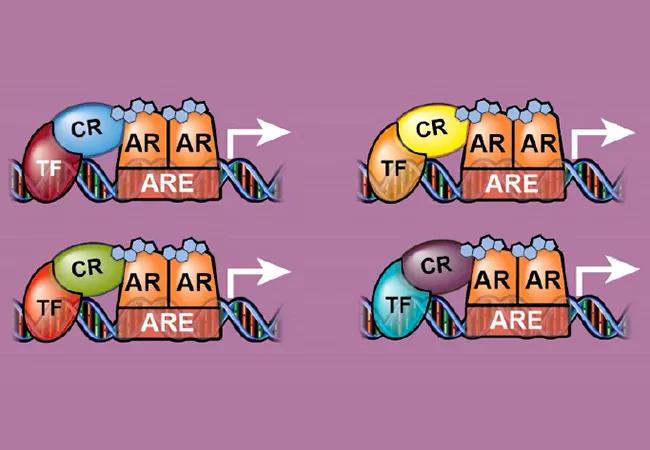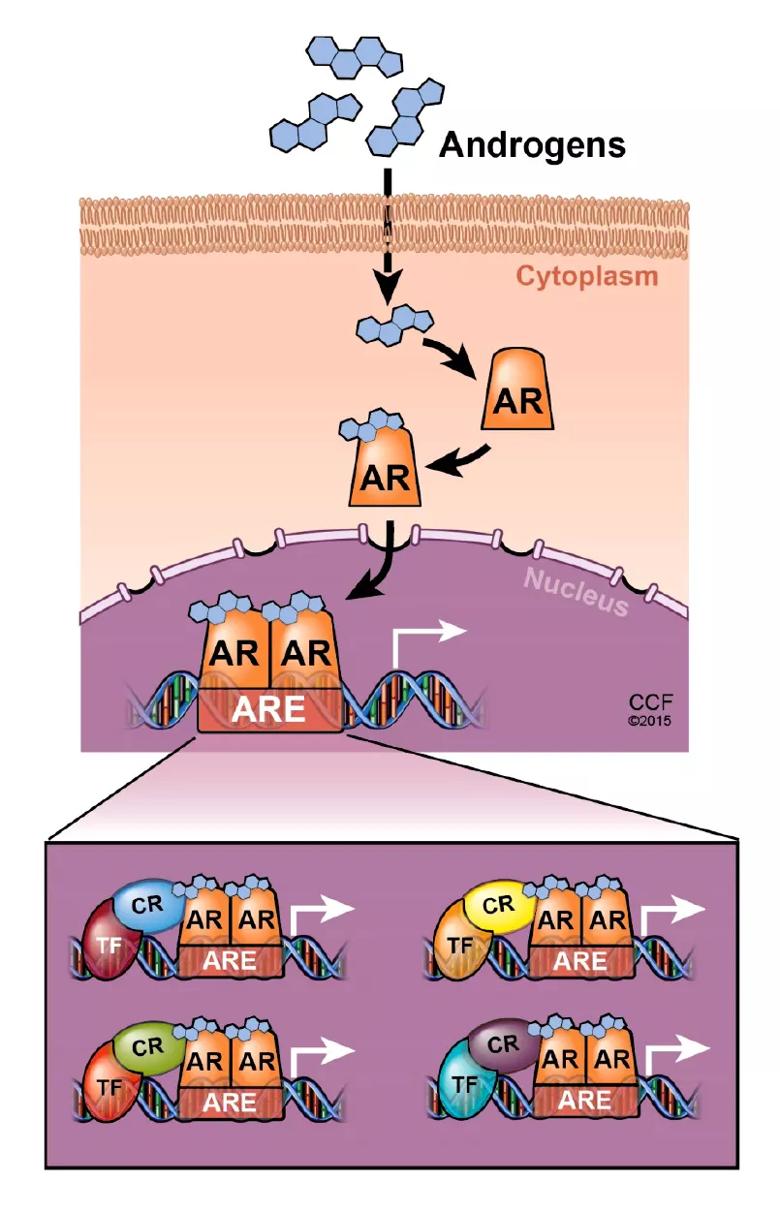Research seeks to disrupt disease progression

Advertisement
Cleveland Clinic is a non-profit academic medical center. Advertising on our site helps support our mission. We do not endorse non-Cleveland Clinic products or services. Policy
Standard androgen deprivation treatment for metastatic prostate cancer prevents the ligand activation of the androgen receptor. Despite an initial remission, prostate cancer progresses by circumventing the step in the androgen receptor signaling pathway targeted by androgen deprivation therapy while continuing to rely on the transcriptional activity of the androgen receptor. The transcriptional output by the reactivated androgen receptor controls prostate cancer behavior and is an alternative therapeutic target, but its molecular regulation is poorly understood.
Novel alternative approaches that block androgen receptor’s transactivation function may prevent or overcome resistance associated with current androgen deprivation therapy.
To isolate targets for such treatments, we studied the transcriptional complexes formed by the androgen receptor at bona fide target genes. We isolated a panel of 450 androgen receptor target genes using integrated information on the genome-wide location of androgen receptor binding sites, the position of transcriptional start sites, and androgen-responsive gene expression profiles. We then determined the contribution of 20 clinically relevant androgen receptor-interaction transcriptional regulatory proteins to the androgen responsiveness of these androgen receptor target genes.
Advertisement
Our studies revealed that the activity of the ligand-activated androgen receptor partitions into fractions that are controlled selectively by protein-protein complexes in which the androgen receptor differentially interacts with diverse transcriptional regulators at its target genes. Our work uncovered the existence of discrete mechanisms of androgen receptor action that control select aspects of prostate cancer cell biology, differ in relevance to clinical prostate cancer progression, and are governed by specific androgen receptor/regulatory protein interactions.
The therapeutic potential of these diverse androgen receptor-dependent transcriptional codes is pursued by defining the molecular protein-protein and protein-DNA interactions by which androgen receptor engages in transcriptional complexes. Information from these studies will be used to develop small molecules and peptides that disrupt critical interactions of those select androgen receptor complexes that are responsible for aggressive prostate cancer behavior and lethal prostate cancer progression.
Dr. Heemers is an associate staff member in Cleveland Clinic’s Department of Cancer Biology.

Figure. Global androgen receptor (AR) action partitions into discrete transcriptional mechanisms in which Androgen Response Element (ARE)-bound AR interacts with select coregulators (CRs) and transcription factors (TFs).
Advertisement
Advertisement

First-of-its-kind research investigates the viability of standard screening to reduce the burden of late-stage cancer diagnoses

Global R&D efforts expanding first-line and relapse therapy options for patients

Study demonstrates ability to reduce patients’ reliance on phlebotomies to stabilize hematocrit levels

A case study on the value of access to novel therapies through clinical trials

Findings highlight an association between obesity and an increased incidence of moderate-severe disease

Cleveland Clinic Cancer Institute takes multi-faceted approach to increasing clinical trial access 23456

Key learnings from DESTINY trials

Overall survival in patients treated since 2008 is nearly 20% higher than in earlier patients